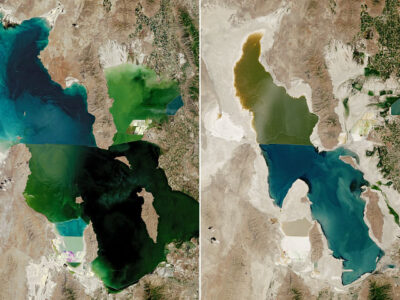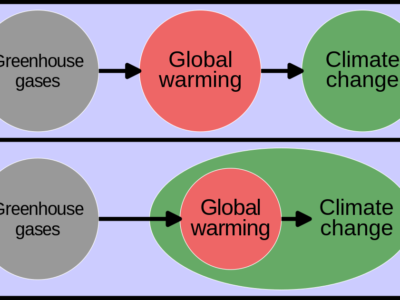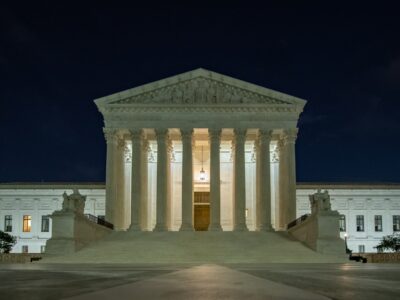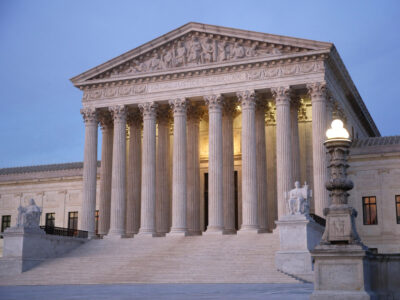Environmental Science
“Salt Lakes in Crisis: Legal Responses to Ecological Catastrophes”
Upcoming U.C. Davis Law Review Symposium To Provide Interdisciplinary Focus On Threatened Western U.S. Lakes
On Friday, September 20th, the student-run U.C. Davis Law Review will host a most timely conference examining an environmental crisis facing many of the American West’s iconic “terminal lakes.” That term refers to lakes that have no natural outlet. For many years, protracted droughts and human diversions from freshwater rivers and streams feeding those lakes …
Continue reading ““Salt Lakes in Crisis: Legal Responses to Ecological Catastrophes””
CONTINUE READINGLet’s Make Tomorrow “National Climate Awareness Day”
Here’s the case for setting aside a day to think about climate change, and why that day should be Aug. 23
Creating National Climate Awareness Day would send a message about the importance of climate change. It would also provide an occasion to educate Americans about the issue. If it can also celebrate modern science, and the contributions of women to science, all the better. And all it would take is a Presidential proclamation.
CONTINUE READINGIs Loper v. Raimondo Really the Power Grab Commentators Assume?
The Supreme Court has already grabbed power from agencies through the major questions doctrine.
Headlines about today’s decision in Loper v Raimondo overturning the 40 year-old decision in Chevron v NRDC that granted agencies deference in their interpretation of ambiguous statutes focus on the “massive power grab,” the decision’s “sweeping” nature and call it a “blow” to the administrative state. My view may be idiosyncratic but I don’t view …
Continue reading “Is Loper v. Raimondo Really the Power Grab Commentators Assume?”
CONTINUE READINGThe “Silver Bullet” Required to Improve California’s Water Rights System: More & Better Data
California Lags Behind Other Western States in Obtaining Critically-Needed & Available Water Diversion Data
Recently I’ve posted stories about efforts to enforce California’s water laws in the face of efforts by some diverters to evade and ignore limits on their ability to privatize public water resources–especially in times of critical drought. One post focused on the federal government’s successful criminal prosecution of a San Joaquin Valley water district manager …
CONTINUE READINGUniversities Gear Up to Fight Climate Change
Here are some recent developments at leading universities.
Universities across the country are making moves to better address climate change: creating new Schools of Sustainability and Climate, establishing research institutes, and appointing Vice Provosts for Climate Change to oversee their work.
CONTINUE READINGEverywhere and Forever All at Once: PFAS and the Failures of Chemicals Regulation
Environmental law helped create a world awash in toxic chemicals. It’s time to think about how regulation can operate as a form of green industrial policy for chemicals.
This post was originally published on the Law & Political Economy Blog as “How Environmental Law Created a World Awash in Toxic Chemicals.” Earlier this spring, the Biden administration finalized two important rules targeting a small subset of so-called forever chemicals: one establishing drinking water standards for six such chemicals and the other designating two …
Continue reading “Everywhere and Forever All at Once: PFAS and the Failures of Chemicals Regulation”
CONTINUE READINGChevron Gets the Headlines, But State Farm May Be More Important
The abortion pill case could undermine the authority of agency’s expert judgments.
The Chevron doctrine requires judges to defer to an agency’s interpretation of a statute if that interpretation is reasonable. The State Farm case, which is much less widely known, requires courts to defer to an agency’s expert judgment unless its reasoning has ignored contrary evidence or has a logical hole. As you probably already know, …
Continue reading “Chevron Gets the Headlines, But State Farm May Be More Important”
CONTINUE READINGRFK Jr. Joins the War on Climate Scientists
RFK Jr. has filled a top campaign position with an anti-vaccine activist named Del Bigtree who has called global warming “an enslavement system.”
Robert F. Kennedy Jr. made headlines when a Super PAC supporting his presidential bid ran a pricey Super Bowl ad, stealing the look of a famous 1960 spot for his uncle John F. Kennedy. But he got far less attention for another move that says a lot about his campaign: He has tapped Del Bigtree …
Continue reading “RFK Jr. Joins the War on Climate Scientists”
CONTINUE READINGClimate Election 2024: Trump Plans to Drain the EPA
The battle plan for a second Trump term includes reinstating Schedule F to remove climate experts from the U.S. government.
Donald Trump could “F” the federal government. Literally. Far-right policy strategists are laying plans, largely endorsed by the Trump campaign, for getting rid of federal government workers who might otherwise stand in the way of a radical deregulation agenda. It’s called “Schedule F,” and it could be used to strip employment protections from as many …
Continue reading “Climate Election 2024: Trump Plans to Drain the EPA”
CONTINUE READINGThe COP28 Halftime Report
Has the annual UN climate conference grown too big to function? Takeaways from Week 1 of COP28 in Dubai.
We’ve reached the midpoint of the annual, two-week international climate conference known as COP (for “conference of parties”), so it’s a good time to reflect on what’s gone down in Dubai. I’m attending along with a delegation of UCLA Law students and colleagues here to follow a range of issues, from methane regulation to China’s …
Continue reading “The COP28 Halftime Report”
CONTINUE READING













